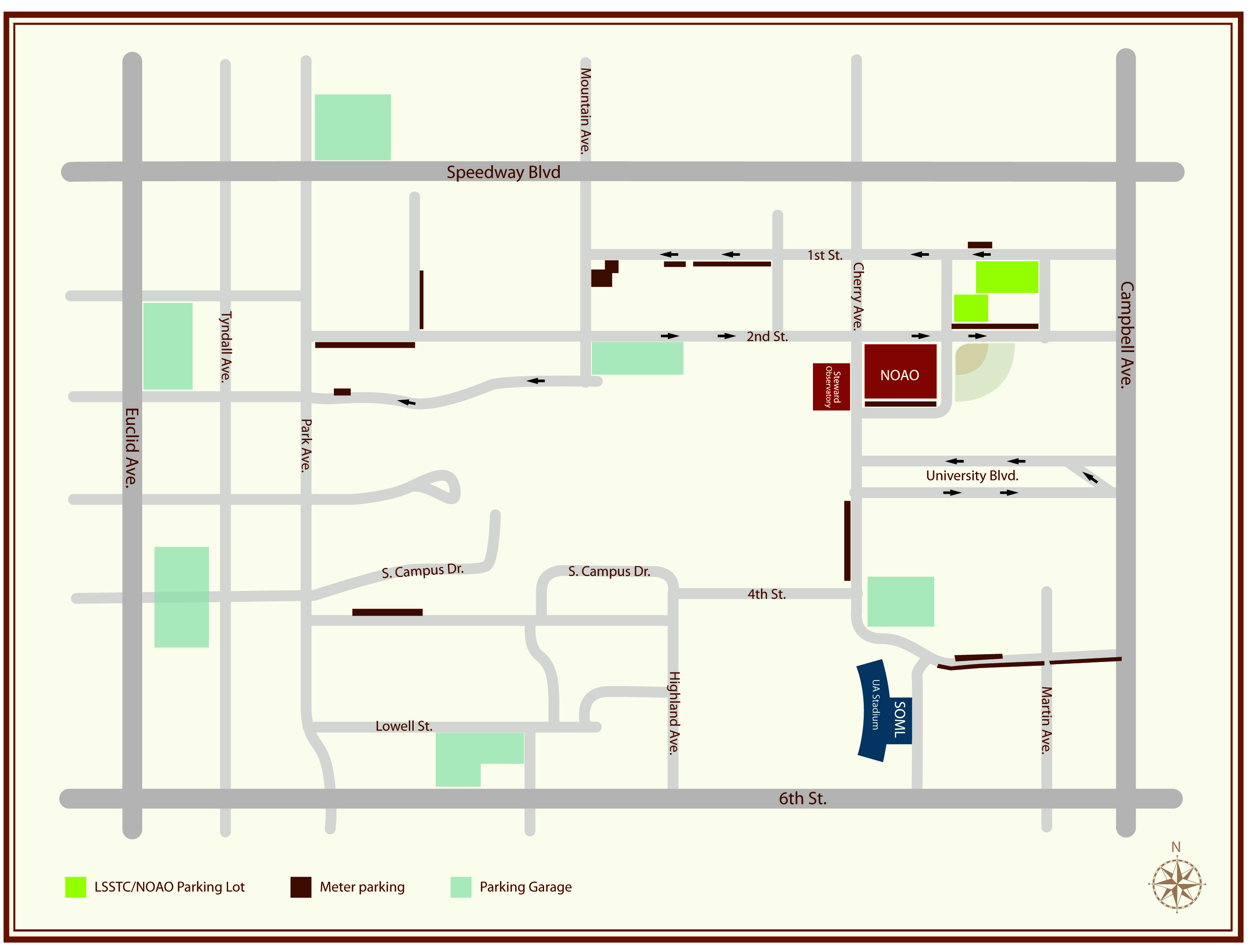|
LSST Project Office NOAO |
|
|
| Head of Safety: 520-318-8481 cgessner@lsst.org |
||
DIRECTIONS TO LSST
From Tucson Airport From Phoenix Sky Harbor Airport
|
TRANSPORTATION Car hire, bus, and shared ride options.
|
UA Parking Map |
PARKING LSST may be able to arrange parking in an NOAO lot or in the University of Arizona's Second Street Garage. Contact LSST to request visitor parking and parking instructions. |
ACCOMODATIONS
For accomodations while in Tucson; please contact Sandra Ortiz at sortiz@lsst.org or (520) 318-8484 or Glenaver Charles-Emerson at glenaver@lsst.org or (520) 318-8351. This will ensure you receive the best rate available and that your expenses are both allowable and fully refundable.
Radisson Suites Tucson provides a discounted corporate rate to visitors of LSST. Use the above link to make your reservation online. The room rate includes a king suite, free internet, and full American breakfast buffet. For an additional fee of $15 each way, the hotel will provide shuttle service to and from Tucson International Airport. This service must be requested at the time room reservations are made. The hotel also provides free shuttle service to and from the University of Arizona campus and within a three-mile radius of the hotel. Arrangements for this service can be made at the front desk.
Other Area Hotels: Tucson Marriott University Park, Aloft Tucson University (LSST Rate: $99/night)
DINING and SHOPPING
Student Unions
Main Gate Square
WEATHER INFORMATION AND TIPS
Financial support for Rubin Observatory comes from the National Science Foundation (NSF) through Cooperative Support Agreement No. 1202910, the Department of Energy (DOE) Office of Science under Contract No. DE-AC02-76SF00515, and private funding raised by the LSST Corporation. The NSF-funded Rubin Observatory Project Office for construction was established as an operating center under management of the Association of Universities for Research in Astronomy (AURA). The DOE-funded effort to build the the Rubin Observatory LSST Camera (LSSTCam) is managed by the SLAC National Accelerator Laboratory (SLAC).
The National Science Foundation (NSF) is an
independent federal agency created by Congress
in 1950 to promote the progress of science. NSF supports basic research and people to create knowledge that transforms the future.
NSF and DOE will continue to support Rubin Observatory in its Operations phase. They will also provide support for scientific research with LSST data.

Contact | Employment | LSST Corporation